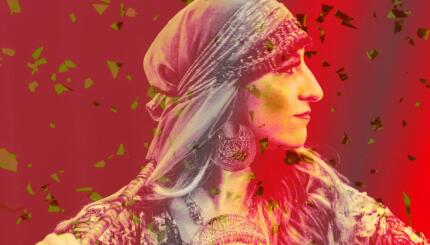The recent reports of women being dragged from the Kotel — the Western Wall — while Torah scrolls were ripped from their hands and subjected to other tactics of intimidation and force by the Israeli police are unnerving, to say the least, to read and listen to. Israel is indeed a modern democracy with a state religion, Ultra-Orthodox Judaism. It is not the only contemporary democratic state with an official religion. Americans unaccustomed to overt state sanctioned religion may find it incomprehensible that instruments of the state would enforce the rules, practices and customs of a religious sect yet this is commonplace in many countries.
David Landau in a Haaretz opinion piece argued that non-Israeli Jewry protesting the enforcement of Israel’s state religion at the Kotel is nothing short of libelous by portraying Israel as a country mired in medieval-isms and religious obscurantism. He asked those who protest Israel’s actions at the Kotel to consider what the state response would be to someone performing non-Catholic worship at the Vatican or Catholic worship at the Diocese of Canterbury in England.
Landau’s argument though only extends to a certain point. Yes, the state would enforce the normative religious practice of the state religion in institutions or buildings that represent that state religion. However, the state would also simultaneously enforce the rights of the protesters acting out in civil disobedience at those sites. The harassment and physical violence inflicted upon the protesters would be prosecuted to at least the same extent as those doing the protesting would be held accountable. It is a basic right of modern democracy to protest and the modern democratic state has as much responsibility to protect the integrity of the legally recognized status quo as it does to protect the well-being of those who disobey it.
This, however, is not the entire point. If we seek to compare and contrast Israel’s treatment of the complex situation at the Kotel with that of other modern polities with a state religion and stop there we will have missed the full picture. Israel is not just a modern democratic state with an official religion, it is also a Jewish state and as such it bears a unique prism by which to view this issue.
Jewish civilization throughout history has not been known for its architecture nor its artwork. Indeed, a traditional Biblical injunction exists proscribing many forms of art. (Nonetheless, Jews throughout history and contemporary times have designed art not conforming to that injunction but a full discussion of that topic is beyond the scope of this post.) Jewish civilization is known for two primary contributions to the wealth of human development: a culture of ideas and a society of engagement with the Divine.
Our buildings do not define us. It is our books and our relationship with God that has been the hallmark defining characteristic of the Jewish story. We do not venerate places; we appreciate the potential that a place has for furthering our religious, spiritual and/or intellectual growth. This is true even when it comes to the greatest and most significant Jewish building project ever undertaken, not once but twice, the Temple in Jerusalem, of which the present-day Kotel is but a retaining outer wall of the Second Temple complex. It wasn’t the Temple building that made the Temple holy, it was the profundity of that space and the power of the rituals performed therein that infused it with holiness. When the Temple leadership become corrupt and when the Jewish people drifted far away from the principles and ideals that it represented it was destroyed.
Thus, perhaps the most critical problem that this Kotel quandary presents is that there is a Kotel quandary in the first place. To acknowledge that the Kotel presents the potential for holiness is absolutely clear. Yet, the politics of power and of control and the perspective that the Kotel itself is vested with a singular ability to intensify our prayers and meditations before God is bordering on idolatry. Professor Yeshayahu Leibowitz, a seminal Orthodox Israeli public intellectual, declared shortly after the 1967 Arab-Israeli war that brought the Temple Mount under Israeli control, that the Kotel should be transformed into a disco or as he called it a Diskotel because he astutely understood the grave possibility that Jews would begin to worship the Kotel instead of God.
So instead of battling for various religious outcomes for the Kotel: status quo, three partitions (men, women and mixed), no partitions, timeshare model, etc., let us throw our hands up in the air and dance. Let us go back to the business of being Jewish: wrestling with ideas and with God and let us stop wrestling over a wall.
Kotel
Pronounced: KOH-tell, Origin: Hebrew, Western Wall in Jerusalem, Judaism’s holiest site.
Torah
Pronunced: TORE-uh, Origin: Hebrew, the Five Books of Moses.



